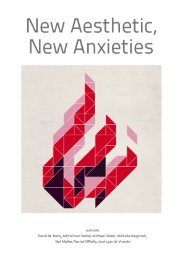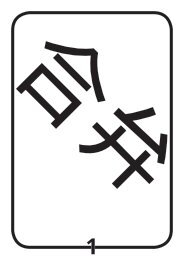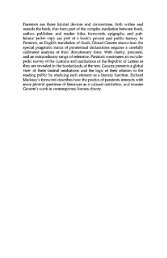Create successful ePaper yourself
Turn your PDF publications into a flip-book with our unique Google optimized e-Paper software.
the present world is seeing perish and, at the same time, every vital force today<br />
has assumed the form of the totalitarian State') ' The schema of betrayal, aimed<br />
at preserving an originary communist purity of doctrine or intention, has come<br />
to be seen as less and less tenable. Not that totalitarianism was already present,<br />
as such, in Marx: this would be a crude proposition, one that remains ignorant<br />
of the strident protest against the destruction of community that in Marx<br />
continuously parallels the Hegelian attempt to bring about a totality, and that<br />
thwarts or displaces this attempt.<br />
But the schema of betrayal is seen to be untenable in that it was the very<br />
basis of the communist ideal that ended up appearing most problematic:<br />
namely, human beings defined as producers (one might even add: human beings<br />
defined at all), and fundamentally as the producers of their own essence in the<br />
form of their labour or their work.<br />
That the justice and freedom - and the equality - included in the communist<br />
idea or ideal have in effect been betrayed in so-called real communism is<br />
something at once laden with the burden of an intolerable suffering (along with<br />
other, no less intolerable forms of suffering inflicted by our liberal societies) and<br />
at the same time politically decisive (not only in that a political strategy must<br />
favour resistance to this betrayal, but because this strategy, as well as our<br />
thought in general, must reckon with the possibility that an entire society has<br />
been forged, docilely and despite more than one forum of revolt, in the mould of<br />
this betrayal - or more plainly, at the mercy of this abandonment: this would be<br />
Zinoviev's question, rather than, Solzhenitsyn's). But these burdens are still<br />
perhaps only relative compared with the absolute weight that crushes or blocks<br />
all our 'horizons': there is, namely, no form of'communist opposition - or let us<br />
say rather 'communitarian' opposition, in order to emphasize that the word<br />
should not be restricted in this context to strictly political references - that has<br />
not been or is not still profoundly subjugated to the goal of a human community,<br />
that is, to the goal of achieving a community of beings producing in essence<br />
their own essence as their work, and furthermore producing precisely this<br />
essence as community. An absolute immanence of man to man - a humanism -<br />
and of community to community - a communism - obstinately subtends,<br />
whatever be their merits or strengths, all forms of oppositional communism, all<br />
leftist and ultraleftist models, and all models based on the workers' council.' In<br />
a sense, all ventures adopting a communitarian opposition to 'real communism'<br />
have by now run their course or been abandoned, but everything continues<br />
along its way as though, beyond these ventures, it were no longer even a<br />
question of thinking about community.<br />
Yet it is precisely the immanence of man to man, or it is man, taken<br />
absolutely, considered as the immanent being par excellence, that constitutes<br />
Nancy/ jThe Inoperative Community/ /55








